Lunchbox products remain must-stock items for c-store retailers. Some 5.4% of all eating occasions are now lunchbox meals - the equivalent to 3.5 billion lunchboxes being made each year. (Source: AC Nielsen). Children and teenagers form an important part of the category, consuming 819 million lunchbox meals. And there's just time, while school's out for summer, to check your range makes the grade.
Research by Warburtons shows that 77% of all lunchboxes contain a sandwich, so it's well worth stocking an adequate selection of bakery products. Innovations such as white bread with the goodness of wholemeal have proved popular with parents looking for better-for-you options for their children.
According to Warburtons category manager Claire Simpson, it's important to offer shoppers a choice at the bread fixture. "As the new school year begins, parents will be looking to purchase healthy, convenient and tasty products for their children's lunchboxes," she says. "It's important for retailers to stock up on the best-selling bread and rolls to ensure they can meet the high levels of demand."
Simpson says that the company's All-in-One bread is ideal for school lunchboxes and adds: "Parents know their kids are getting all the fibre and wheatgerm goodness of wholemeal from a white bread that they'll enjoy eating. Our research of key consumer trends also led us to develop our premium wholemeal soft sandwich rolls, which provide shoppers with a healthy and convenient lunchbox option."
Mintel data shows that more than half of lunchboxes contain crisps or snacks. Manufacturers in this category have also responded to the growing public awareness of health and one of the most recent and high-profile product developments came from Walkers, which now cooks its crisps in sunseed oil to reduce saturated fat levels.
Salt reduction has featured heavily in many manufacturers' developments, and since January, United Biscuits UK (UBUK) - whose brands include Go Ahead, Jaffa Cakes, Hula Hoops and Mini Cheddars - has included an on-pack statement highlighting it no longer uses hydrogenated vegetable oils.
UBUK impulse trading director Michael Rouse comments: "We are developing our big brands to add incremental growth within the snacking category and have delivered some fantastic products and formats that are perfect for the lunchbox occasion. Our focus for new and existing product development has been aligned with the three key trends of 'pleasure', 'healthier' and 'making life easier' to give consumers a range of options."
Cheese is a popular choice among parents either as a sandwich filler
or an extra snack for lunchboxes. Pilgrim's Choice, which has a £54m share of the branded Cheddar market, recently launched its Minis range. The company hopes the cheeses will sell well as food to go or as a lunchtime addition and
are available packed in nets of five 20g portions.
Mike Davies, managing director of North Downs Dairy, which produces Pilgrims Choice, says: "We know that more and more people are looking for convenience food options in the lunchbox and Cheddar cheese is no exception. We apply the same rigorous quality controls to Pilgrims Choice's range of convenience products as we do to our larger slab formats."
Terry Ward, consumer marketing director at Milk Link, an integrated dairy business owned by more than 2,000 British dairy farmers, agrees that convenience cheese is on the up. He adds: "Our research tells us that consumers want high-quality products that are easy to use. In response we have moved to shingled packs of sliced cheese to make it easier to separate the slices. We are also exploring formats for easy-to-open snack portions, perfect on the go or for lunchboxes."
Kraft's Dairylea Lunchables have also become a popular savoury option for children's lunchboxes. Kraft Foods communications manager Sarah Petts says: "The Chicken Stack'ems and Ham Stack'ems varieties are key to the independent trade. Each is pricemarked at £1.39 to provide children with an affordable yet fun eating experience."
Meanwhile, Kerry Foods has relaunched its Cheestrings brand in time for the back-to-school period. The company is keen to hammer home the message to parents that the product contains nothing but 100% real cheese.
The brand is being supported with a £5m marketing programme including TV ads throughout the back-to-school period. Marketing controller for cheese snacks at Kerry Foods, Peter Elvin, says: "While Cheestrings has doubled in value to £50m over the past four years, there was a misconception among parents that Cheestrings aren't 100% real cheese. Parents were concerned that by buying Cheestrings, they weren't providing their children with a healthy, natural product, when in fact it is quite the opposite. Cheestrings have the same nutritional profile as other cheeses such as Cheddar and Edam."
Although fruit has always been top for parents when it comes to a healthy lunchtime snack, the government's five-a-day campaign means there's even more to be gained from the fresh fruit category.
While whole fruit is always an option and is becoming more popular in the convenience sector, there are also a number of products that can be merchandised as part of the five-a-day message. Del Monte commercial director Leigh Edwards explains: "Shoppers are consuming more and more prepared fruit snacks as an alternative to whole fruit, so fruit snack offerings in this high-footfall area only extend consumer choice in the category. Currently, 84% of children's lunchboxes contain
a fruit item, yet parents face
a constant battle to find tasty and healthy lunchbox snacks that their children will like.
"There's a strong consumer desire to adopt more healthy lifestyles, with the political health agenda resting squarely on the anti-obesity, five-a-day campaign. However, an average of just 2.5 portions of fruit and vegetables are consumed by the typical UK consumer each day. Del Monte is responding to pressures from consumers for exciting new ways to hit the five-a-day target."
In June, the company gave its Fruitini juice and jelly brand a new formulation and fresh look, highlighting the products' health benefits. It is also enjoying good sales of its Fruit Express pots.
Edwards adds: "Del Monte's snacking portfolio also gives parents the reassurance that what they are feeding the family is, in fact, healthy and free from any nasties. Products like Fruitini and Fruit Express are thriving as the natural alternative to confectionery and crisps.
Edwards also claims that many retailers are enjoying increased sales in the lunchbox category by offering busy parents single-serve pick-and-mix fixtures.
An area of the buoyant fruit snacking market that benefits from the increased public awareness of health is the raisins market, which is now worth £25.1m, and has seen year-on-year growth of 6.5% (Source: AC Nielsen, May 2006).
Shirley Griffiths, marketing manager at S&B Herba Foods, which produces the established Sun-Maid California raisins brand, says dried fruit snacks are performing well. "The small boxes are ideal for children's lunchboxes," she says. "Sun-Maid California Raisins have been a popular snack for many generations. Many people have grown up with Sun-Maid and remember their mothers putting the little red boxes in their lunchbox and they in turn are now buying them for their own children."
David Smith, marketing director of fellow dried fruit snacks producer Whitworths, agrees that the category has a bright future. "The move to ban crisps, chocolate and carbonated drinks from schools will fuel the growth of the dried fruit lunchbox category," says Smith. "Parents want children to eat healthily, but they also realise that better-for-you lunchbox foods should appeal to children, or they simply won't eat them. The growth in health awareness and a determination to improve the quality of children's diets are the main motivators behind the choice of what's included in a lunchbox."
Smith urges retailers to merchandise fruit snacks alongside other snacking options and adds: "The origins of fruit snacks lie in home baking, but retailers who site fruit snacks in the home-baking fixture are losing out on a major profit opportunity."
Elsewhere in the category, Sun Valley Snacks has branched out from its traditions in pub snacks to produce a range for lunchboxes. The company's You Are What You Eat dried fruit, nuts and seeds is a popular choice for parents looking for a crisp alternative, says marketing manager Jonathan Barr. "Smaller, more innovative companies have been the quickest
to react to the government guidelines, with new ranges of healthier snacks and alternative choices to the mainstream high-fat snacks," he explains.
"Sun Valley identified the changes almost two years ago and we set about creating a range of healthy and healthier snacks, which was a considerable departure from our traditional salted peanuts for pubs.
"Our new range is the only bagged snacks to have been officially approved by the Health Education Trust for healthy eating in schools."
Soft drinks designed for the lunchbox have enjoyed good growth with products such as Britvic's Fruit Shoot and PepsiCo's 200ml Tropicana Go leading the way. Britvic category director Andrew Marsden believes there's an opportunity for convenience retailers to benefit from the back-to-school trade. "There's a distinct profit opportunity for retailers in the kids' lunchbox market when they go back to school," he says. "The rise in health awareness has not diminished the opportunities. Retailers can now promote healthier soft drinks alongside healthy foods and cross-promote them both for after-school snacks and also to parents topping up their kids' lunchbox supplies."
Princes Soft Drinks marketing director David Patemore agrees: "Manufacturers and brand owners will look to understand the government's guiding principles and introduce further lunchbox-style solutions to stimulate growth of waters, flavoured waters, juice drinks," he says. "Parents are looking for purity and natural ingredients, hence the rise in popularity of juices and smoothies as lunchbox alternatives."
The Panda range of children's soft drinks, now owned by Vimto, was recently revamped with all artificial colours and flavourings removed. Brand manager Claire Witt says the company has launched a number of multipacks for the back-to-school market. "The packaging redesign means the new streamline bottle fits neatly into a standard lunchbox," she says. "According to our research, parents are looking for a healthy choice within the kids' soft drinks category and we have created a new healthier portfolio. Through the new Panda range, retailers can provide shoppers with a well-known brand which appeals to kids and products that address the demand for healthier drinks."
Other category developments include Campina, which has added a smaller 200ml bottle to its Yazoo range, and a new range of flavoured waters from Buxton aimed specifically for children.
It's obvious why sweets have become a target for a government looking to improve the health of the nation's children. But in light of the lunchbox debate, manufacturers have been quick to point out that confectionery still has a role to play in lunchboxes or as an after-school treat.
Rory Goodwin, sales director for Haribo, which manufactures brands including Starmix and Tangfastics, says: "The debate about the diet of young children means that many parents are now looking to have greater control over what their kids eat. Packed lunches have come under fire and parents have been criticised for including sweets in them. The fact is sweets should be used to provide a treat dimension in a lunchbox, either on special occasions or as an unexpected treat."
The company says it has taken
a number of steps to address concerns, including introducing nutritional panels on all packaged brands, 20g treat-size packs, using fewer artificial colours and not directly advertising brands to children under the age of seven.
Richard Brittle, purchasing director at specialist confectionery cash and carry Hancocks, says: "The character of the confectionery market for children is continually changing, with a greater awareness of health and schools who are looking to stop the sale of sweets within their grounds. Yet children will still want to purchase a sweet treat, and the journey home from school is a popular time to achieve this. This is a strong opportunity for independent retailers, although they need to give careful consideration to price point and portion size."
The typical lunchbox is certainly changing and manufacturers have had to respond. It's important convenience retailers are not left behind when it comes to providing a comprehensive range of products that will keep both parents and pupils happy.
Buxton has added two 250ml children's flavoured waters to its range. Strawberry splash and lemon wave are available in packs of eight bottles featuring cartoon character Billy Buxton. Each bottle also features a panel where children can write their names.
Barr Soft Drinks is to launch a range of 60% fruit juice drinks under its St Clement's Originals brand. The range will be available from Septemberand is packaged in 250ml PET screw-cap bottles. It comes in three still and three sparkling flavours, including apple & blackcurrant, tropical, mixed fruit & apple and grape & strawberry.
The company has also developed a 250ml range of Strathmore spring water.
Müller dairy is launching Little Stars children's products made from natural ingredients. The range comprises fromage frais, high juice jelly, yogurt drink and smooth yogurt. Little Stars will be supported by a £4.5m marketing investment.
Del Monte has given its Fruitini brand a new look for summer. The ambient dessert range has an improved formulation and packs will feature prominent health messages. Fruitini jelly now contains 98% fruit juice and is available in orange, strawberry, raspberry and blackcurrant variants. The relaunch will be supported by a marketing campaign.
US food importer Empire Food Brokers is launching Stretch Island Fruit Leathers in the UK - a fruit strip containing no added sugar or artificial colours, flavours or preservatives. The fruit snack range is available in cases of 30 in nine varieties including apple, apricot, mango and strawberry. To maximise shelf standout, the product comes with a self-dispenser display box.
Dole has launched a fruit dessert to add to its existing fruit pots. Fruit Parfait comes in three flavours - peaches & vanilla créme, apples & caramel créme and pineapple & coconut créme. The lunchbox-sized dessert is available in packs of four 123g pots.
Nestlé's Tip Top Splijies will benefit from a back-to-school advertising campaign throughout August. The dairy snack is available in a four-pack in both chocolate and vanilla flavours. Splijies will be running a Wallace & Gromit promotion in which consumers collect tokens to send away for modelling kits and the chance to win family trips to Universal Studios' Port Aventura theme park.
Research by Warburtons shows that 77% of all lunchboxes contain a sandwich, so it's well worth stocking an adequate selection of bakery products. Innovations such as white bread with the goodness of wholemeal have proved popular with parents looking for better-for-you options for their children.
According to Warburtons category manager Claire Simpson, it's important to offer shoppers a choice at the bread fixture. "As the new school year begins, parents will be looking to purchase healthy, convenient and tasty products for their children's lunchboxes," she says. "It's important for retailers to stock up on the best-selling bread and rolls to ensure they can meet the high levels of demand."
Simpson says that the company's All-in-One bread is ideal for school lunchboxes and adds: "Parents know their kids are getting all the fibre and wheatgerm goodness of wholemeal from a white bread that they'll enjoy eating. Our research of key consumer trends also led us to develop our premium wholemeal soft sandwich rolls, which provide shoppers with a healthy and convenient lunchbox option."
Mintel data shows that more than half of lunchboxes contain crisps or snacks. Manufacturers in this category have also responded to the growing public awareness of health and one of the most recent and high-profile product developments came from Walkers, which now cooks its crisps in sunseed oil to reduce saturated fat levels.
Salt reduction has featured heavily in many manufacturers' developments, and since January, United Biscuits UK (UBUK) - whose brands include Go Ahead, Jaffa Cakes, Hula Hoops and Mini Cheddars - has included an on-pack statement highlighting it no longer uses hydrogenated vegetable oils.
UBUK impulse trading director Michael Rouse comments: "We are developing our big brands to add incremental growth within the snacking category and have delivered some fantastic products and formats that are perfect for the lunchbox occasion. Our focus for new and existing product development has been aligned with the three key trends of 'pleasure', 'healthier' and 'making life easier' to give consumers a range of options."
Cheese is a popular choice among parents either as a sandwich filler
or an extra snack for lunchboxes. Pilgrim's Choice, which has a £54m share of the branded Cheddar market, recently launched its Minis range. The company hopes the cheeses will sell well as food to go or as a lunchtime addition and
are available packed in nets of five 20g portions.
Mike Davies, managing director of North Downs Dairy, which produces Pilgrims Choice, says: "We know that more and more people are looking for convenience food options in the lunchbox and Cheddar cheese is no exception. We apply the same rigorous quality controls to Pilgrims Choice's range of convenience products as we do to our larger slab formats."
Terry Ward, consumer marketing director at Milk Link, an integrated dairy business owned by more than 2,000 British dairy farmers, agrees that convenience cheese is on the up. He adds: "Our research tells us that consumers want high-quality products that are easy to use. In response we have moved to shingled packs of sliced cheese to make it easier to separate the slices. We are also exploring formats for easy-to-open snack portions, perfect on the go or for lunchboxes."
Kraft's Dairylea Lunchables have also become a popular savoury option for children's lunchboxes. Kraft Foods communications manager Sarah Petts says: "The Chicken Stack'ems and Ham Stack'ems varieties are key to the independent trade. Each is pricemarked at £1.39 to provide children with an affordable yet fun eating experience."
Meanwhile, Kerry Foods has relaunched its Cheestrings brand in time for the back-to-school period. The company is keen to hammer home the message to parents that the product contains nothing but 100% real cheese.
The brand is being supported with a £5m marketing programme including TV ads throughout the back-to-school period. Marketing controller for cheese snacks at Kerry Foods, Peter Elvin, says: "While Cheestrings has doubled in value to £50m over the past four years, there was a misconception among parents that Cheestrings aren't 100% real cheese. Parents were concerned that by buying Cheestrings, they weren't providing their children with a healthy, natural product, when in fact it is quite the opposite. Cheestrings have the same nutritional profile as other cheeses such as Cheddar and Edam."
Fruit and desserts
Although fruit has always been top for parents when it comes to a healthy lunchtime snack, the government's five-a-day campaign means there's even more to be gained from the fresh fruit category.
While whole fruit is always an option and is becoming more popular in the convenience sector, there are also a number of products that can be merchandised as part of the five-a-day message. Del Monte commercial director Leigh Edwards explains: "Shoppers are consuming more and more prepared fruit snacks as an alternative to whole fruit, so fruit snack offerings in this high-footfall area only extend consumer choice in the category. Currently, 84% of children's lunchboxes contain
a fruit item, yet parents face
a constant battle to find tasty and healthy lunchbox snacks that their children will like.
"There's a strong consumer desire to adopt more healthy lifestyles, with the political health agenda resting squarely on the anti-obesity, five-a-day campaign. However, an average of just 2.5 portions of fruit and vegetables are consumed by the typical UK consumer each day. Del Monte is responding to pressures from consumers for exciting new ways to hit the five-a-day target."
In June, the company gave its Fruitini juice and jelly brand a new formulation and fresh look, highlighting the products' health benefits. It is also enjoying good sales of its Fruit Express pots.
Edwards adds: "Del Monte's snacking portfolio also gives parents the reassurance that what they are feeding the family is, in fact, healthy and free from any nasties. Products like Fruitini and Fruit Express are thriving as the natural alternative to confectionery and crisps.
Edwards also claims that many retailers are enjoying increased sales in the lunchbox category by offering busy parents single-serve pick-and-mix fixtures.
An area of the buoyant fruit snacking market that benefits from the increased public awareness of health is the raisins market, which is now worth £25.1m, and has seen year-on-year growth of 6.5% (Source: AC Nielsen, May 2006).
Shirley Griffiths, marketing manager at S&B Herba Foods, which produces the established Sun-Maid California raisins brand, says dried fruit snacks are performing well. "The small boxes are ideal for children's lunchboxes," she says. "Sun-Maid California Raisins have been a popular snack for many generations. Many people have grown up with Sun-Maid and remember their mothers putting the little red boxes in their lunchbox and they in turn are now buying them for their own children."
David Smith, marketing director of fellow dried fruit snacks producer Whitworths, agrees that the category has a bright future. "The move to ban crisps, chocolate and carbonated drinks from schools will fuel the growth of the dried fruit lunchbox category," says Smith. "Parents want children to eat healthily, but they also realise that better-for-you lunchbox foods should appeal to children, or they simply won't eat them. The growth in health awareness and a determination to improve the quality of children's diets are the main motivators behind the choice of what's included in a lunchbox."
Smith urges retailers to merchandise fruit snacks alongside other snacking options and adds: "The origins of fruit snacks lie in home baking, but retailers who site fruit snacks in the home-baking fixture are losing out on a major profit opportunity."
Elsewhere in the category, Sun Valley Snacks has branched out from its traditions in pub snacks to produce a range for lunchboxes. The company's You Are What You Eat dried fruit, nuts and seeds is a popular choice for parents looking for a crisp alternative, says marketing manager Jonathan Barr. "Smaller, more innovative companies have been the quickest
to react to the government guidelines, with new ranges of healthier snacks and alternative choices to the mainstream high-fat snacks," he explains.
"Sun Valley identified the changes almost two years ago and we set about creating a range of healthy and healthier snacks, which was a considerable departure from our traditional salted peanuts for pubs.
"Our new range is the only bagged snacks to have been officially approved by the Health Education Trust for healthy eating in schools."
Soft drinks
Soft drinks designed for the lunchbox have enjoyed good growth with products such as Britvic's Fruit Shoot and PepsiCo's 200ml Tropicana Go leading the way. Britvic category director Andrew Marsden believes there's an opportunity for convenience retailers to benefit from the back-to-school trade. "There's a distinct profit opportunity for retailers in the kids' lunchbox market when they go back to school," he says. "The rise in health awareness has not diminished the opportunities. Retailers can now promote healthier soft drinks alongside healthy foods and cross-promote them both for after-school snacks and also to parents topping up their kids' lunchbox supplies."
Princes Soft Drinks marketing director David Patemore agrees: "Manufacturers and brand owners will look to understand the government's guiding principles and introduce further lunchbox-style solutions to stimulate growth of waters, flavoured waters, juice drinks," he says. "Parents are looking for purity and natural ingredients, hence the rise in popularity of juices and smoothies as lunchbox alternatives."
The Panda range of children's soft drinks, now owned by Vimto, was recently revamped with all artificial colours and flavourings removed. Brand manager Claire Witt says the company has launched a number of multipacks for the back-to-school market. "The packaging redesign means the new streamline bottle fits neatly into a standard lunchbox," she says. "According to our research, parents are looking for a healthy choice within the kids' soft drinks category and we have created a new healthier portfolio. Through the new Panda range, retailers can provide shoppers with a well-known brand which appeals to kids and products that address the demand for healthier drinks."
Other category developments include Campina, which has added a smaller 200ml bottle to its Yazoo range, and a new range of flavoured waters from Buxton aimed specifically for children.
bitter Sweet
It's obvious why sweets have become a target for a government looking to improve the health of the nation's children. But in light of the lunchbox debate, manufacturers have been quick to point out that confectionery still has a role to play in lunchboxes or as an after-school treat.
Rory Goodwin, sales director for Haribo, which manufactures brands including Starmix and Tangfastics, says: "The debate about the diet of young children means that many parents are now looking to have greater control over what their kids eat. Packed lunches have come under fire and parents have been criticised for including sweets in them. The fact is sweets should be used to provide a treat dimension in a lunchbox, either on special occasions or as an unexpected treat."
The company says it has taken
a number of steps to address concerns, including introducing nutritional panels on all packaged brands, 20g treat-size packs, using fewer artificial colours and not directly advertising brands to children under the age of seven.
Richard Brittle, purchasing director at specialist confectionery cash and carry Hancocks, says: "The character of the confectionery market for children is continually changing, with a greater awareness of health and schools who are looking to stop the sale of sweets within their grounds. Yet children will still want to purchase a sweet treat, and the journey home from school is a popular time to achieve this. This is a strong opportunity for independent retailers, although they need to give careful consideration to price point and portion size."
The typical lunchbox is certainly changing and manufacturers have had to respond. It's important convenience retailers are not left behind when it comes to providing a comprehensive range of products that will keep both parents and pupils happy.
Ready for school
Buxton has added two 250ml children's flavoured waters to its range. Strawberry splash and lemon wave are available in packs of eight bottles featuring cartoon character Billy Buxton. Each bottle also features a panel where children can write their names.
Barr Soft Drinks is to launch a range of 60% fruit juice drinks under its St Clement's Originals brand. The range will be available from Septemberand is packaged in 250ml PET screw-cap bottles. It comes in three still and three sparkling flavours, including apple & blackcurrant, tropical, mixed fruit & apple and grape & strawberry.
The company has also developed a 250ml range of Strathmore spring water.
Müller dairy is launching Little Stars children's products made from natural ingredients. The range comprises fromage frais, high juice jelly, yogurt drink and smooth yogurt. Little Stars will be supported by a £4.5m marketing investment.
Del Monte has given its Fruitini brand a new look for summer. The ambient dessert range has an improved formulation and packs will feature prominent health messages. Fruitini jelly now contains 98% fruit juice and is available in orange, strawberry, raspberry and blackcurrant variants. The relaunch will be supported by a marketing campaign.
US food importer Empire Food Brokers is launching Stretch Island Fruit Leathers in the UK - a fruit strip containing no added sugar or artificial colours, flavours or preservatives. The fruit snack range is available in cases of 30 in nine varieties including apple, apricot, mango and strawberry. To maximise shelf standout, the product comes with a self-dispenser display box.
Dole has launched a fruit dessert to add to its existing fruit pots. Fruit Parfait comes in three flavours - peaches & vanilla créme, apples & caramel créme and pineapple & coconut créme. The lunchbox-sized dessert is available in packs of four 123g pots.
Nestlé's Tip Top Splijies will benefit from a back-to-school advertising campaign throughout August. The dairy snack is available in a four-pack in both chocolate and vanilla flavours. Splijies will be running a Wallace & Gromit promotion in which consumers collect tokens to send away for modelling kits and the chance to win family trips to Universal Studios' Port Aventura theme park.
















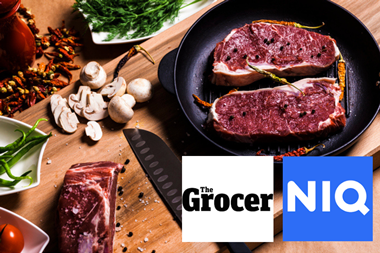
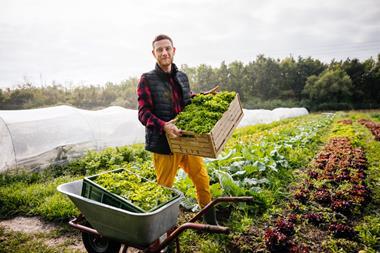
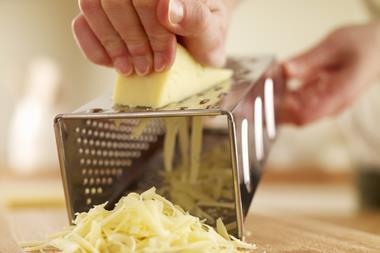
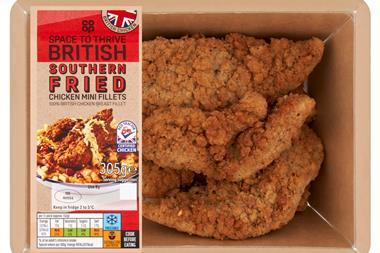
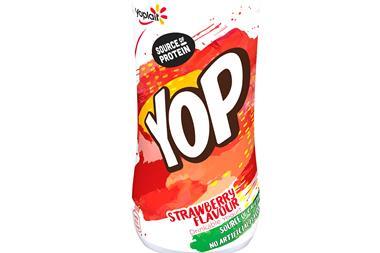

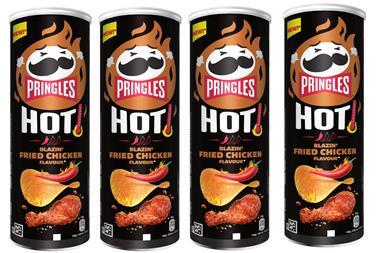

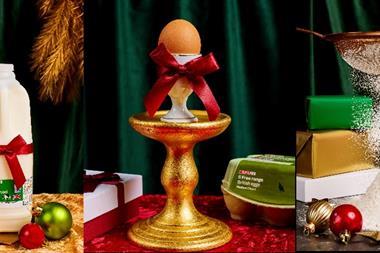

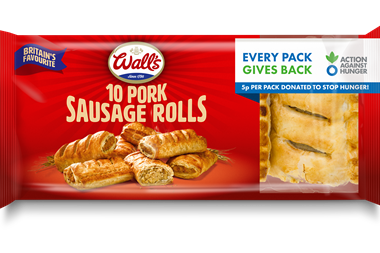
No comments yet